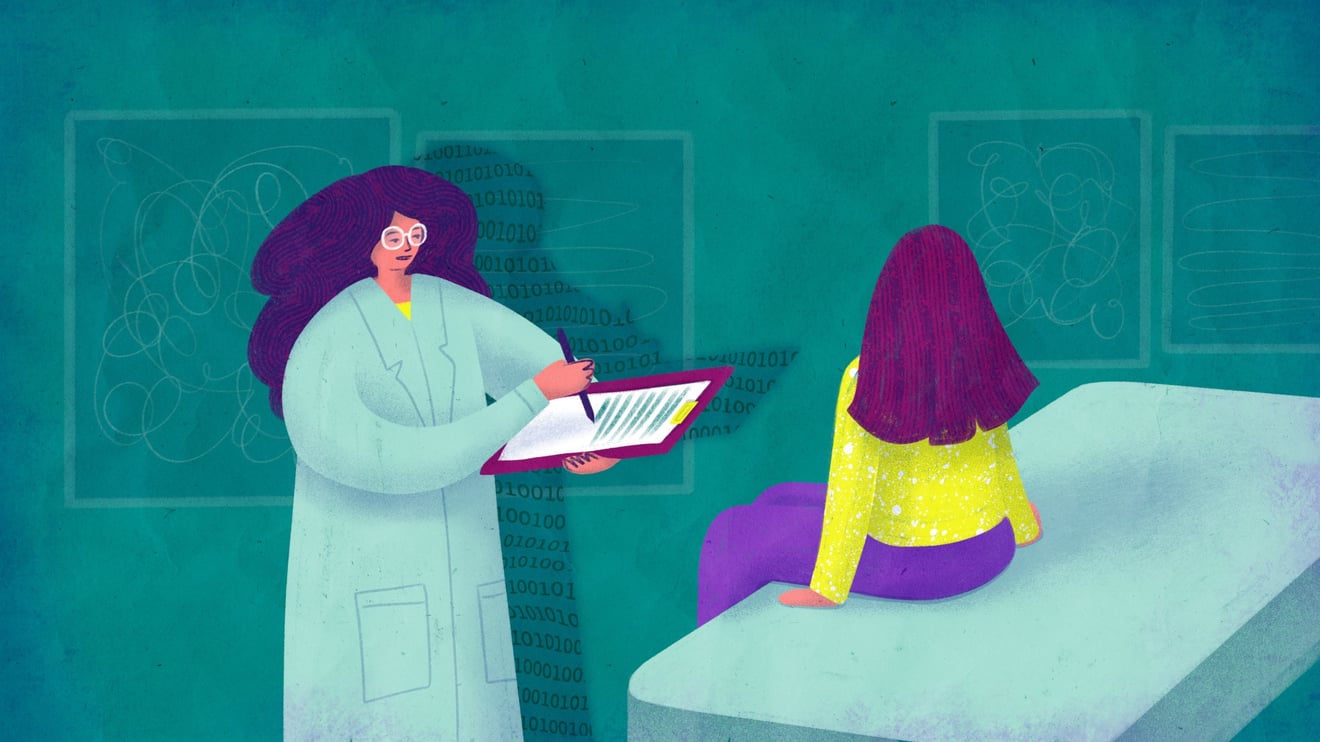Artificial intelligence
AI promises to revolutionize medical note taking. But at what cost?

Tech incumbents and startups alike are clamoring to apply artificial intelligence to medical documentation — a task that has long plagued clinicians burdened by hours of paperwork. But as the technology takes hold, concerns about harm and accuracy are mounting, Brittany reports in a sweeping new story. The industry is careening toward fully automated tools with less human oversight. Microsoft's Nuance, for instance, plans to blend large language model GPT-4 into a fully-AI driven medical scribe software called DAX, sidestepping the human reviewers that offered quality-control for its previous products.
Brittany spoke to more than a dozen AI researchers, company executives, doctors, and quality documentation specialists to understand the chasm between what AI makers promise and the performance goals they'll have to meet if they're to be safely used in the clinic. A common concern: the technology isn't regulated by the FDA and is subject to little external accountability.
"I do feel strongly that anything that is generated with solely AI should be labeled," Grace Cordovano, a longtime patient advocate, told STAT. "You go to Dunkin Donuts, there's a warning on your coffee cup saying 'this is hot.' Well, you know, obviously! So why are we not labeling? I just don't understand that." Read the full special report here.
hospitals
Not the geek squad
At a hospital in Lawrence, Mass., digital access coordinators like Janelle Vargas help patients access their electronic bills, medication lists, health records, and online Zoom appointments — crucial elements of modern health care that often exclude already medically underserved patients who don't speak English, or who can't navigate the technology on their phones. Ambar visited Pentucket Medical Riverwalk, part of the Mass General Brigham system, which is piloting the digital access coordinator program as part of Mass General's United Against Racism health equity initiative.
Allison Bryant, the senior medical director for health equity at Mass General Brigham, told Ambar that "many of our patients have felt very comfortable that the DAC is someone who might look like their granddaughter or might be whomever else."
Ensuring that all patients get equitable access to technology requires careful attention to bias, Ambar reports: When front desk staff initially handed iPads out to patients to report their own health outcomes, they were lending the tablets out 20% less often to non-White patients, for instance. Patient portal engagement rates for Hispanic patients hovered at 4%at the beginning of the pandemic, though efforts like the digital access coordination pilot have bumped that number up beyond 15%.
Read more about the pilot, and the patients it has touched, here.
Telehealth
How DEA's virtual care overhaul impacts psychiatrists
Federal laws threatening to restrict virtual prescriptions — especially for controlled substances — could turn telepsychiatry on its head, psychiatrist Jessica Gold writes in an opinion piece for STAT.
The public health emergency will end in early May, and with it will go many regulatory flexibilities expanding reimbursement for virtual care. And though it had relaxed some of its restrictions on virtual controlled substance prescriptions during the emergency, the DEA recently proposed again requiring in-person visits for those prescriptions.
Gold, who treat patients and prescribe medication for conditions like ADHD, said she's worried the new rules will keep some psychiatrists from seeing "this group of patients, so they don't have to bother with seeing anyone in person at all. For the rest of us, it will lead to an administrative disaster," she writes. Read more here, and let us know your thoughts.


No comments